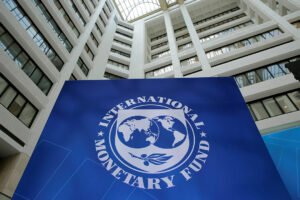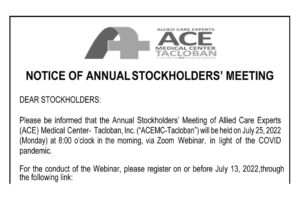Senior citizens and pneumonia vaccine

All Filipino senior citizens aged 60 years old and above must receive one dose of pneumococcal vaccine throughout their lifetime to help lower their risk of contracting pneumonia and to reduce its severity if they do get the disease.
Health experts and senior citizen advocates issued this appeal during the recent forum entitled “Bakunado si Lolo at Lola, Iwas Pulmonya” with the support of MSD Philippines and the Pharmaceutical and Healthcare Association of the Philippines (PHAP).
Pneumonia is an infection of the lungs that can cause mild to severe illness in people of all ages, but senior citizens are at increased risk of getting infected.
The World Health Organization (WHO) said it is the single-largest infectious cause of death in children worldwide. People at risk for pneumonia also include adults over the age of 65 and people with preexisting health problems, the agency added.
Depending on the severity of the pneumonia, the signs and symptoms may include cough, shortness of breath, fever, sweating and shaking chills, fatigue, chest pain, nausea, vomiting or diarrhea and confusion, especially in older adults. The WHO noted that when a person has pneumonia, the alveoli are filled with pus and fluid, which makes breathing painful and limits oxygen intake.
Unfortunately, while pneumonia can be prevented by vaccination, awareness about the disease is low and only about 20% of the country’s senior citizen population has received pneumococcal vaccination.
Pneumonia was the seventh leading cause of death in the Philippines in 2021. Data from the Philippine Health Insurance Corp. (PhilHealth) showed that 737,659 Filipinos sought medical assistance and filed PhilHealth claims due to pneumonia in 2019 amounting to P10.64 billion.
“We urge our senior citizens to avail [themselves] of free pneumococcal vaccination at health centers and public health facilities,” said Allandale Nacino, medical officer IV at the Disease Prevention and Control Bureau of the Department of Health (DoH).
“Pneumococcal vaccination can prevent costly hospitalization and intensive care unit admission,” stressed Arthur Dessi E. Roman, medical specialist III at the Research Institute for Tropical Medicine.
The DoH also recommends that senior citizens get the flu vaccine every year. Pneumococcal vaccines and flu shots are now available at local pharmacies and drugstore chains nationwide where these are administered by licensed pharmacists.
“Vaccines are safe and can save lives,” reminded Samir M. Manzanilla, project development officer IV at the National Commission of Senior Citizens, the government agency dedicated to promoting the rights and welfare of Filipino senior citizens.
“Pneumonia is a leading cause of hospitalization and death among senior citizens,” warned Ciriaco Angeles, president of the Provincial Federation of Senior Citizens Association of Cavite, Inc. Noting that many senior citizens have gone online but are still not fully informed about pneumonia, he urged his fellow seniors to learn more about the disease and how to avail themselves of the free pneumonia vaccination at village health centers.
Aside from getting the pneumococcal vaccine, senior citizens can likewise lower their risk for pneumonia by adopting healthy living practices recommended by the US Centers for Disease Control and Prevention.
Among these are avoiding people who are sick. If a person is sick, stay away from others as much as possible to keep them from getting sick. As in COVID-19 prevention practices, wash your hands regularly, and cough or sneeze into a tissue or into your elbow or sleeve. Clean and disinfect surfaces that are touched a lot such as door handles, light switches, phones, remote controls, toilet flush handles and other shared items. It is also crucial to avoid contact with cigarette smoke or quit smoking. Take good care of medical conditions or comorbidities like asthma, diabetes and heart disease.
The WHO Global Vaccine Action Plan 2011–2020 and Immunization Agenda 2030 and the United Nations Decade of Healthy Ageing recommend a life-course immunization approach, where everyone, whatever our age or stage of life and wherever we live, can benefit from the health, social and economic advantages of vaccines. This broadening of focus beyond “pediatric vaccination programs” to “vaccination programs for all ages and all groups” is vital for future pandemic preparedness and global health security.
Teodoro B. Padilla is the executive director of Pharmaceutical and Healthcare Association of the Philippines, which represents the biopharmaceutical medicine and vaccine industry in the country. Its members are in the forefront of research and development efforts for COVID-19 and other diseases that affect Filipinos.




